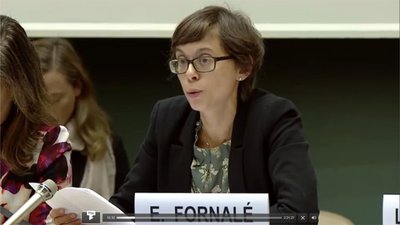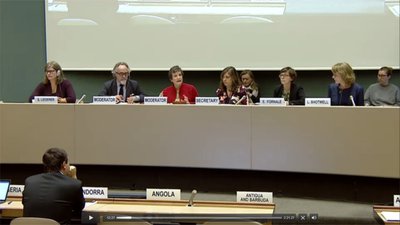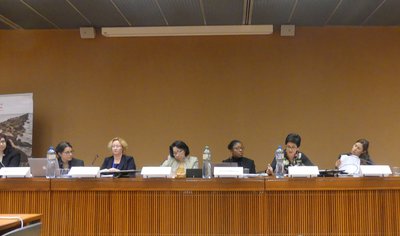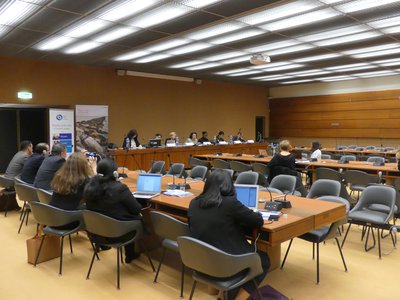17 Oct 2017
WTI professor makes presentation on migration at UN
Professor Elisa Fornalé of the WTI was invited to address a United Nations thematic session on migration in Geneva on 13 October.
The invitation as expert panellist to the sixth thematic session of the UN global compact for safe, orderly and regular migration came from the Office of the Special Representative of the Secretary-General (SRSG) on International Migration. The session was entitled, ‘Irregular migration and regular pathways, including decent work, labour mobility, recognition of skills and qualifications and other relevant measures’.
Professor Fornalé took part in Panel 3: ‘Recognition of skills and qualifications and relevant measures’. The panel discussed ways to address labour market needs and skills shortages at all skill levels in both countries of destination and origin, through regular pathways for migration.
The panel also explored good practice for facilitating the interjurisdictional recognition and validation of qualifications, skills and competencies as well as the prior learning of migrant workers to ensure optimal mobility and matching of these skills to available jobs. Prof. Fornalé introduced different approaches adopted in the context of mutual recognition of professional skills and qualifications.
The informal thematic session was part of a series on facilitating safe, orderly and regular migration held between April 2017 and November 2017 to gather substantive input and concrete recommendations to inform the development of the Global Compact on Migration.
UN Side Event
Along with Dr Marion Panizzon, Prof. Elisa Fornalé co-organised a Side Event as part of the thematic discussions of the global compact for migration. The side event was co-sponsored by the Government of the Republic of the Philippines.
Focusing on insights from ASEAN and ECOWAS regarding labour mobility and skills recognition, the event introduced and discussed the role of regional frameworks to improve the skills and recognition of qualifications of migrant workers.
Dr Federica Cristiani of the WTI introduced the panel consisting of Dr Joji Aragon from the Legal, Legislative and International Affairs Department of Labour and Employment of the Republic of the Philippines, Dr Nathalia Popova from the International Labour Organisation, Mrs Amanda Bisong from ECOWAS, Dr Miryam Hazan from the Inter-American Development Bank and Mrs Pamela Apaza Lanyi from the World Trade Organization.
The fruitful presentations and discussions aimed at answering the following questions: What approaches to skills and qualifications can we identify at the domestic and regional levels?, What are the legal challenges of their implementation? and, How can we utilise regional and bilateral mutual recognition agreements as well as other related instruments in the global compact for migration?
Some of the highlights of the debate included the “lifelong learning” process adopted by the Republic of the Philippines, which implemented alongside the reintegration programme, offers migrants a pathway for recognition and qualification.
Further info
UN thematic sessions





